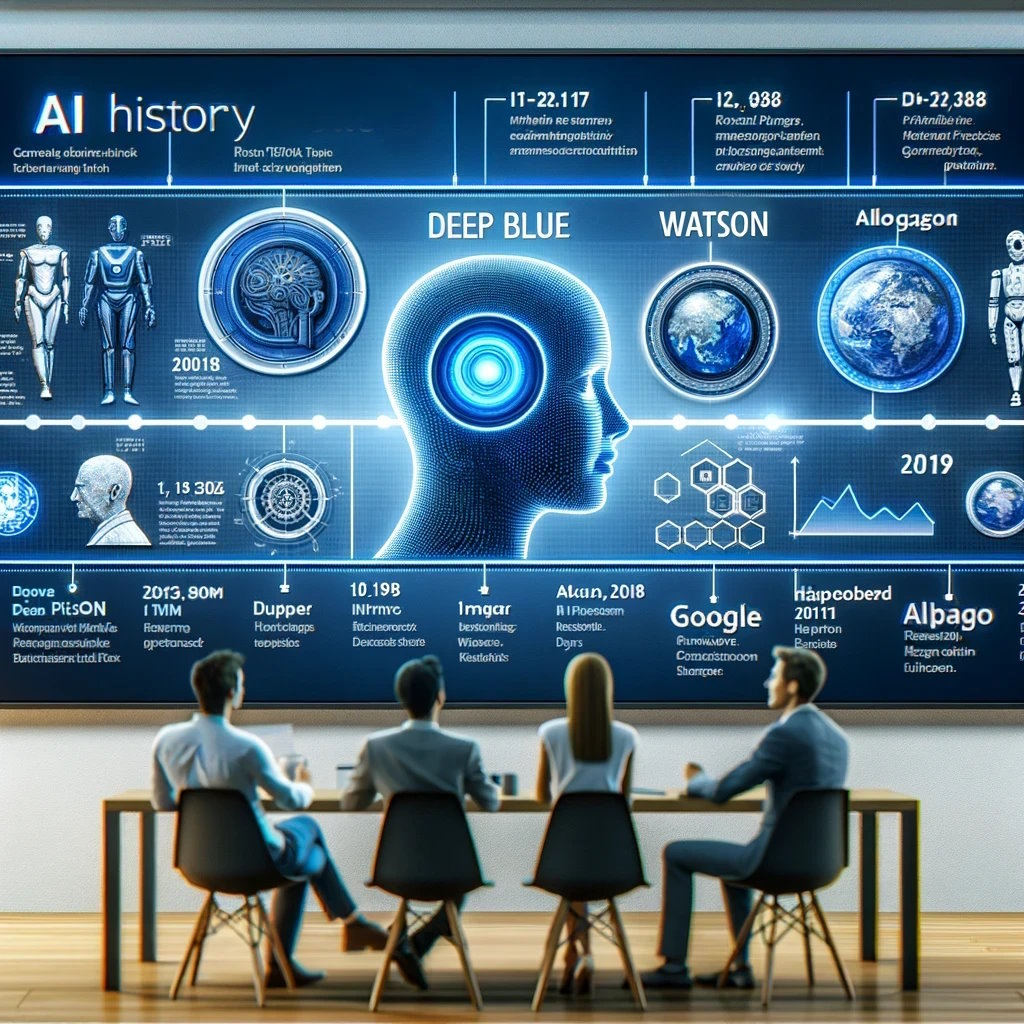The history of artificial intelligence (AI) is punctuated by landmark achievements that have challenged and often surpassed human intelligence in specific domains. In 1997, IBM’s Deep Blue defeated world chess champion Garry Kasparov, marking a significant milestone in the development of AI. This was followed by IBM Watson’s victory on Jeopardy! in 2011, where it outperformed two of the show’s greatest champions using natural language processing and vast knowledge databases. More recently, Google’s AlphaGo made headlines in 2016 by defeating Lee Sedol, one of the world’s top Go players, showcasing AI’s ability to master complex strategy games. These events highlighted AI’s capacity to excel in isolated tasks, directly challenging human intelligence in unprecedented ways.
In the rapidly evolving landscape of artificial intelligence (AI), a compelling concept is gaining traction: Augmented Intelligence. Distinct from the notion of autonomous AI systems supplanting human roles, Augmented Intelligence focuses on enhancing human capabilities through symbiotic partnerships between humans and machines. This paradigm shift suggests that the true potential of AI lies not in replacing human intelligence but in augmenting it, creating collaborative solutions that leverage the strengths of both entities.
Augmented Intelligence, sometimes referred to as Intelligence Augmentation (IA), emphasizes the supportive role of AI technologies. The concept is rooted in the belief that AI can be designed to enhance human decision-making, creativity, and productivity rather than functioning independently of human oversight. This approach promises to transform various sectors, including healthcare, finance, education, and beyond.
In healthcare, for instance, Augmented Intelligence is revolutionizing patient care and diagnostics. AI algorithms analyze vast amounts of medical data to provide physicians with insights that enhance their diagnostic accuracy and treatment plans. Tools like IBM Watson for Health are exemplary, assisting doctors in identifying personalized treatment options based on comprehensive data analysis. By integrating AI’s analytical prowess with the nuanced expertise of medical professionals, patient outcomes are significantly improved.


The financial industry also stands to benefit from Augmented Intelligence. AI-powered systems can process and analyze market trends, detect fraudulent activities, and optimize investment strategies, all while allowing financial experts to maintain control over critical decisions. This combination of human intuition and AI’s data-driven insights leads to more informed and effective financial management.
Education is another domain where Augmented Intelligence is making significant inroads. Personalized learning platforms utilize AI to tailor educational experiences to individual students’ needs, promoting better engagement and understanding. AI tutors, like Carnegie Learning’s intelligent tutoring systems, support teachers by providing personalized feedback and resources, enhancing the overall learning experience without replacing the essential human element in education.


Critically, the success of Augmented Intelligence depends on thoughtful integration and ethical considerations. Ensuring that AI systems are transparent, accountable, and designed to complement rather than control human decision-making is paramount (AI Ethics Journal). The focus must remain on creating AI tools that are not only powerful but also aligned with human values and societal goals (IEEE Spectrum).
While the debate between AI autonomy and augmentation continues, it is clear that Augmented Intelligence offers a promising path forward. By leveraging the unique strengths of both humans and machines, we can achieve outcomes that neither could accomplish alone. As we navigate the future of AI, the potential for Augmented Intelligence to elevate human potential remains a beacon of hope and innovation.
In the grand chess game of AI, perhaps the smartest move is not to replace the player but to give them the best possible assistant.



